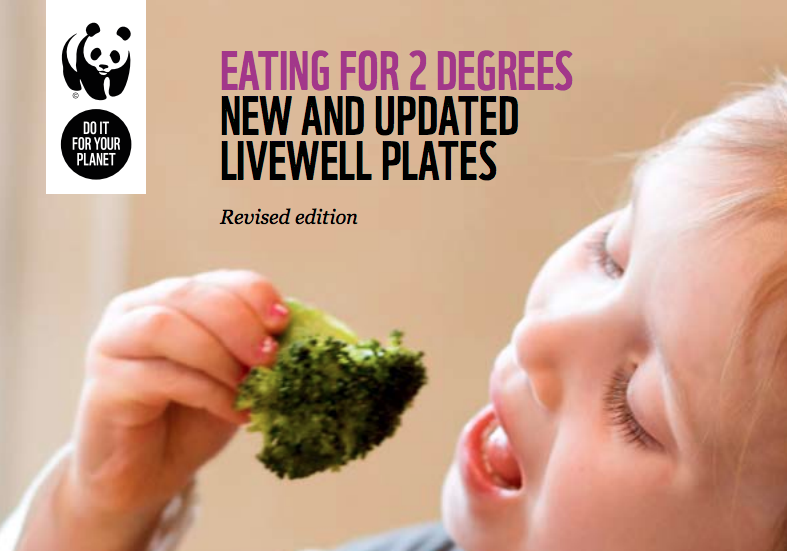A new World Wildlife Research Fund (WWF) report, Eating for 2 Degrees – New and Updated Livewell Plates, calls on the UK Government and Climate Change Committee to set goals for reducing emissions from the food sector. Following-up from the original 2011 WWF Livewell report, it aims to ‘provide diets that are good for both people and the planet.’
There are new plates developed specifically for adolescents (10–17 years old), adults (18–64), the elderly (65–85) and vegans. They illustrate the absolute minimal dietary changes needed by 2030 to keep below a two-degree rise in global temperature, as per the 2015 Paris Climate Change Agreement. The new Livewell Plates are described as,”representative diets that meet national nutritional requirements while reducing the environmental footprint of the food system that produces them.”
The Plates were based on modelling from Public Health England’s Eatwell Guide and current dietary intakes as baselines. They aim to create a diet with the fewest possible changes to current recommendations while meeting the restrictions imposed. In general, they contain more plant foods, particularly those that are nutrient dense such as vegetables, wholegrain cereals products, nuts, legumes and vegetable oils.
This report builds on thinking on healthy sustainable diets that we are increasingly seeing from consumer and public health organisations and think tanks. And the WWF believe it’s time that the UK Government implements healthy eating advice that also integrates sustainability.
The authors hope to develop additional Plates in future, including one for infants and primary school children, as well as country-specific Plates.
What are the Livewell Principles?
People are advised to follow the following Livewell Principles:
- Eat more plants – enjoy vegetables and whole grains
- Eat a variety of foods – have a colourful plate
- Waste less food – one third of food produced for human consumption is lost or wasted
- Moderate your meat consumption, both red and white – enjoy other sources of protein such as peas, beans and nuts
- Buy food that meets a credible certified standard – consider MSC, free-range and fair trade
- Eat fewer foods high in fat, salt and sugar – keep foods such as cakes, sweets and chocolate as well as cured meat, fries and crisps to an occasional treat. Choose water, avoid sugary drinks and remember that juices only account for one of your 5-a-day however much you drink.
Changes we think should be implemented in light of the report
- Food businesses including manufacturers and caterers should be looking at ways of including more plant foods in general into their products and menus, and using credible certified standards where these are available.
- Food service in particular can look at ways of promoting their expanding range of plant-based options. A new scheme from Veganuary, The Humane League UK and Vegan Chef Day gives a good example of raising awareness.
- Retailers should be looking at ways of shifting their promotional budgets away from high fat, salt, sugar foods and towards the core foods in the Eatwell Guide and Livewell Plates.
- We are already seeing a shift in reported consumption of animal products by consumers. A recent report from Mintel suggesting 28% of Brits have reduced or limited their meat consumption in the last six months. Consumers can further support their efforts towards more sustainable diets by thinking more holistically – eating more plants, wasting less, and so on.

